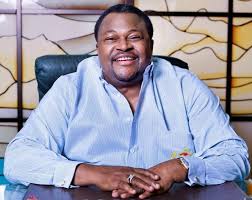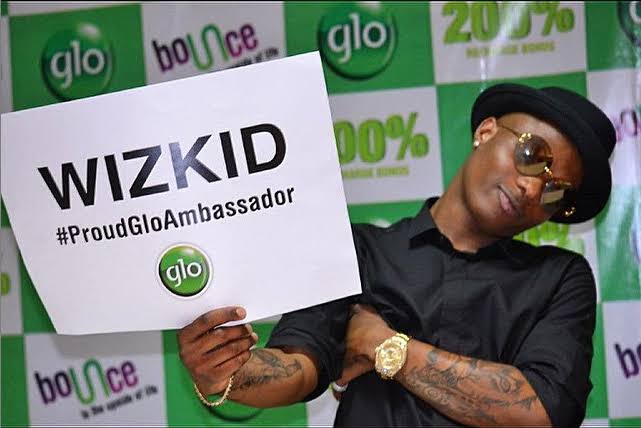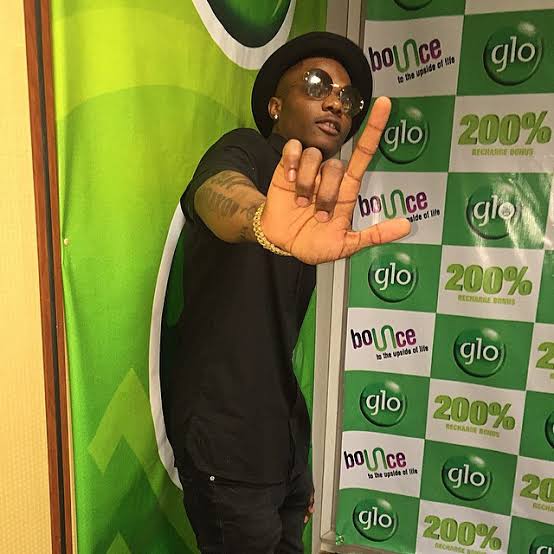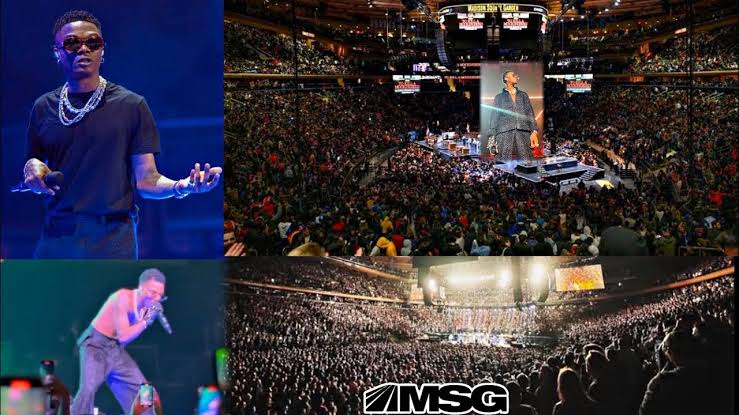In the spring of 2015, a cryptic tweet from Ayodeji Ibrahim Balogun, better known as Wizkid, sent ripples through Nigerian entertainment circles.
“Proud to be part of something real. Bigger moves ahead. #GloAmbassador.”
Behind the scenes of that short message stood one of Africa’s most enigmatic billionaires: Dr. Mike Adenuga, the reclusive founder of Globacom and a quiet patron of Nigerian talent.
While other moguls chased red carpets and media blitzes, Adenuga preferred subtlety. His investments didn’t scream—they whispered, shaped, and endured.
This is the untold story of how Mike Adenuga—through strategic sponsorships, behind-the-curtain influence, and understated loyalty—helped fund and frame Wizkid’s journey from Ojuelegba’s streets to Grammy stages and Billboard charts.
THE GODFATHER PLAYBOOK

To understand Adenuga’s role in Wizkid’s rise, you first have to understand how Mike Adenuga operates.
Born in 1953 to a schoolteacher and a business-minded mother, Adenuga built his empire through oil (Conoil), banking (Equitorial Trust), and most famously, telecommunications—launching Globacom in 2003 to take on South African behemoth MTN.
Glo didn’t just enter the market. It crashed the gates with two game-changers: per-second billing and celebrity-backed branding. And that’s where Adenuga’s genius shined. He didn’t just sell data—he sold culture.
He brought stars into the fold: P-Square, D’banj, Burna Boy, Basketmouth, Odunlade Adekola, and, eventually, Wizkid. Each wasn’t just a brand ambassador—they were threads in a larger cultural tapestry Adenuga was quietly weaving: a pan-Nigerian, pan-African identity rooted in excellence and spectacle.
Adenuga never gave interviews. Rarely appeared in public. But when he signed an artist, it wasn’t to make noise—it was to make history.
THE STRATEGIC ENDORSEMENT
In 2013, Wizkid was one of MTN’s top brand ambassadors, riding high off his debut album Superstar and a steady stream of hits. But insiders suggest a tug-of-war began behind the scenes. According to industry journalist Joey Akan, “Glo made a quiet but aggressive offer. Bigger money, wider latitude, and Adenuga’s reputation for loyalty.”

Sources estimate the contract value around ₦120–₦130 million—one of the highest endorsement fees in Nigeria at the time. But for Wizkid, it wasn’t just about the paycheck. It was about access, infrastructure, and amplification.
Glo gave him a platform: nationwide concerts, brand activation tours, corporate backing that let him move freely across the continent. More importantly, it gave him the Adenuga shield—a corporate giant that let Wizkid be who he was without overbranding his image.
While MTN leaned on yellow-and-white branding and extensive ad campaigns, Glo gave Wizkid room to breathe. He could headline shows without over-commercialization. He could tour Ghana, Benin, and Côte d’Ivoire under Glo’s pan-African banner. This freedom fed directly into his next phase: global ambition.
SILENT CAPITAL, LOUD RESULTS

In late 2015, just months after joining Glo, Wizkid began recording what would become “Ojuelegba (Remix)” with Drake and Skepta—a collaboration that stunned the world and became a global Afrobeats entry point.
Industry watchers say Glo’s financial support during this period was critical. Wizkid was now funding studio sessions in London, hiring global PR agents, and traveling between Lagos and Europe with fewer financial constraints. While the brand wasn’t plastered over every project, its capital backed the quiet machine powering him forward.
This pattern—Adenuga’s invisible dividends—mirrored how he built Conoil and Glo: fund the work, not the noise.
Even when Wizkid dropped Sounds from the Other Side in 2017, his first global-facing album, there was no splashy Glo partnership tagged to it. But insiders confirm that Adenuga’s companies continued paying his endorsement fees, even when Wizkid wasn’t doing major campaigns.
FROM OJUELEGBA TO MADISON SQUARE GARDEN

By 2020, Wizkid was no longer just a Nigerian or even African star—he was a global music phenomenon. The release of Made in Lagos, an album that blended Lagos street soul with international polish, was the turning point. Essence, featuring Tems, became the first Nigerian song to break into the Billboard Hot 100 Top 10. It wasn’t just a hit—it was a cultural shift.
He sold out the O2 Arena in London three nights in a row. He became the first African artist to headline Madison Square Garden. He performed on U.S. late-night television. The Grammys came calling. Afrobeats was no longer knocking at the door of global music—it was inside, setting the table.
And through all this, Globacom and Adenuga’s early investment became even more valuable—not just to Wizkid, but to history.
Glo hadn’t just endorsed a pop star. It had backed a pioneer.
While other brands chased Davido or Burna Boy with flashy, high-volume campaigns, Adenuga’s approach proved prophetic: subtle, long-haul investment in a talent with staying power.
Wizkid’s global presence elevated the Glo brand by association. He was now the Afrobeats ambassador for fans in Atlanta, London, Paris, and Kingston—and to many, his roots were intertwined with Glo’s vision of African excellence.
THE ADENUGA METHOD—MONEY, MYSTIQUE, AND MASTERY
Mike Adenuga’s public silence is legendary. He hasn’t granted an interview in over a decade. He avoids galas. You won’t find him posing beside celebrities at award shows or tweeting motivational quotes.
Yet few billionaires have done more for African creative culture than Adenuga.
He has funded Professor Johnbull, the hit TV series promoting moral themes. He restored Alliance Française Lagos, renaming it the Mike Adenuga Centre. He has bankrolled dance contests like Glo Battle of the Year and supported regional comedy festivals, football leagues, literary awards, and university scholarships.
His wealth—estimated by Forbes at $6.3 billion as of 2024—has moved silently through Nigeria’s veins, empowering without posturing.
Wizkid benefited from this method. He didn’t become the “face of Glo.” He became something more powerful: the beneficiary of Adenuga’s invisible empire-building.
This model contrasts sharply with the Western celebrity-endorsement complex. In the U.S., brands push artists to tweet, post, and wear their logos. Adenuga? He prefers legacy over marketing. He lets results speak.
FINAL THOUGHTS — THE DIVIDENDS OF LEGACY
Today, when Wizkid steps on a stage in New York, Tokyo, or Paris, he carries more than a microphone. He carries the cumulative backing of those who believed when others watched. His climb is not just a personal triumph—it is a dividend paid to the early architects of Afrobeats’ global surge.
Mike Adenuga’s investments in Wizkid may never be shouted from billboards. But they ripple across streaming charts, tour posters, fashion runways, and the quiet pride of a continent that backed its own.
The dividends? They’re global. But the roots remain unmistakably Nigerian—and unmistakably Adenuga’s.












Leave a comment